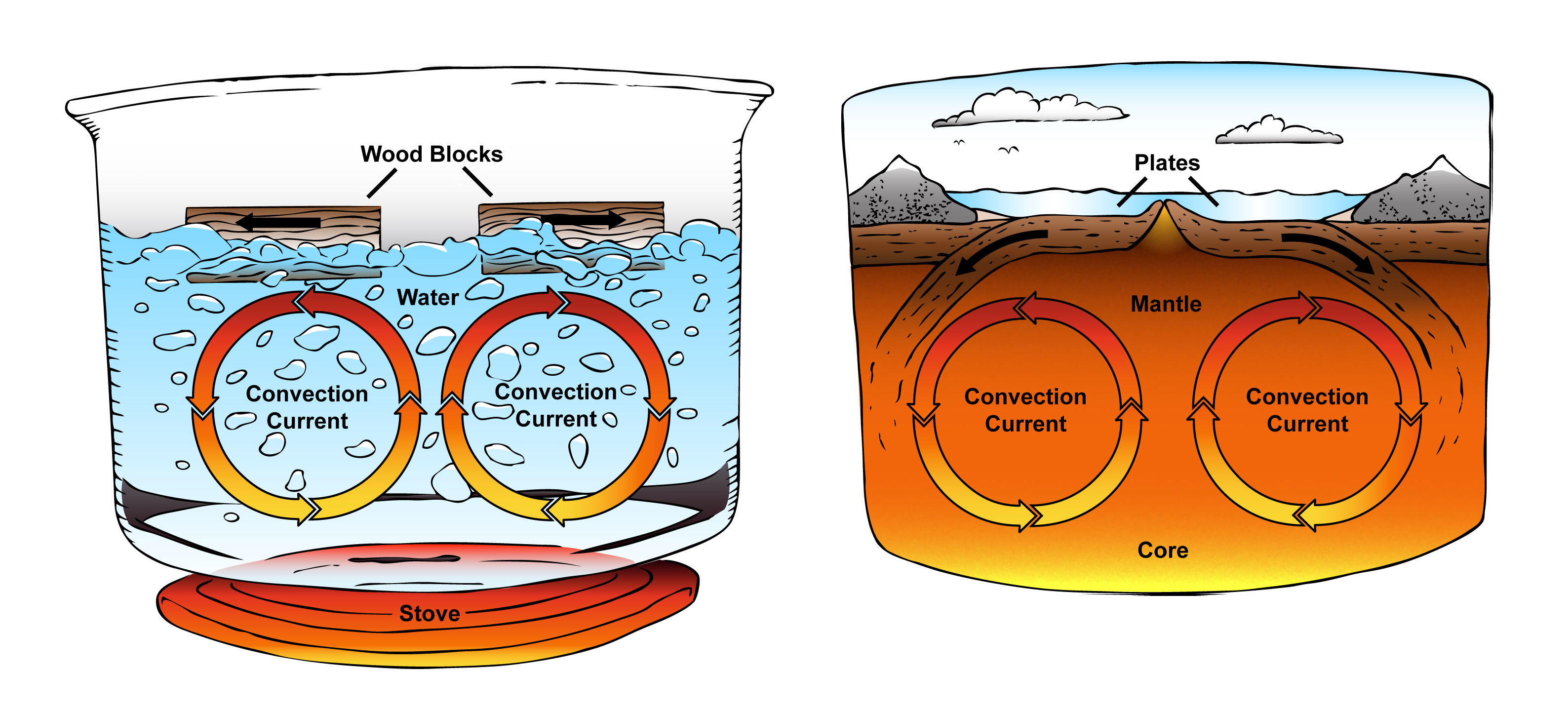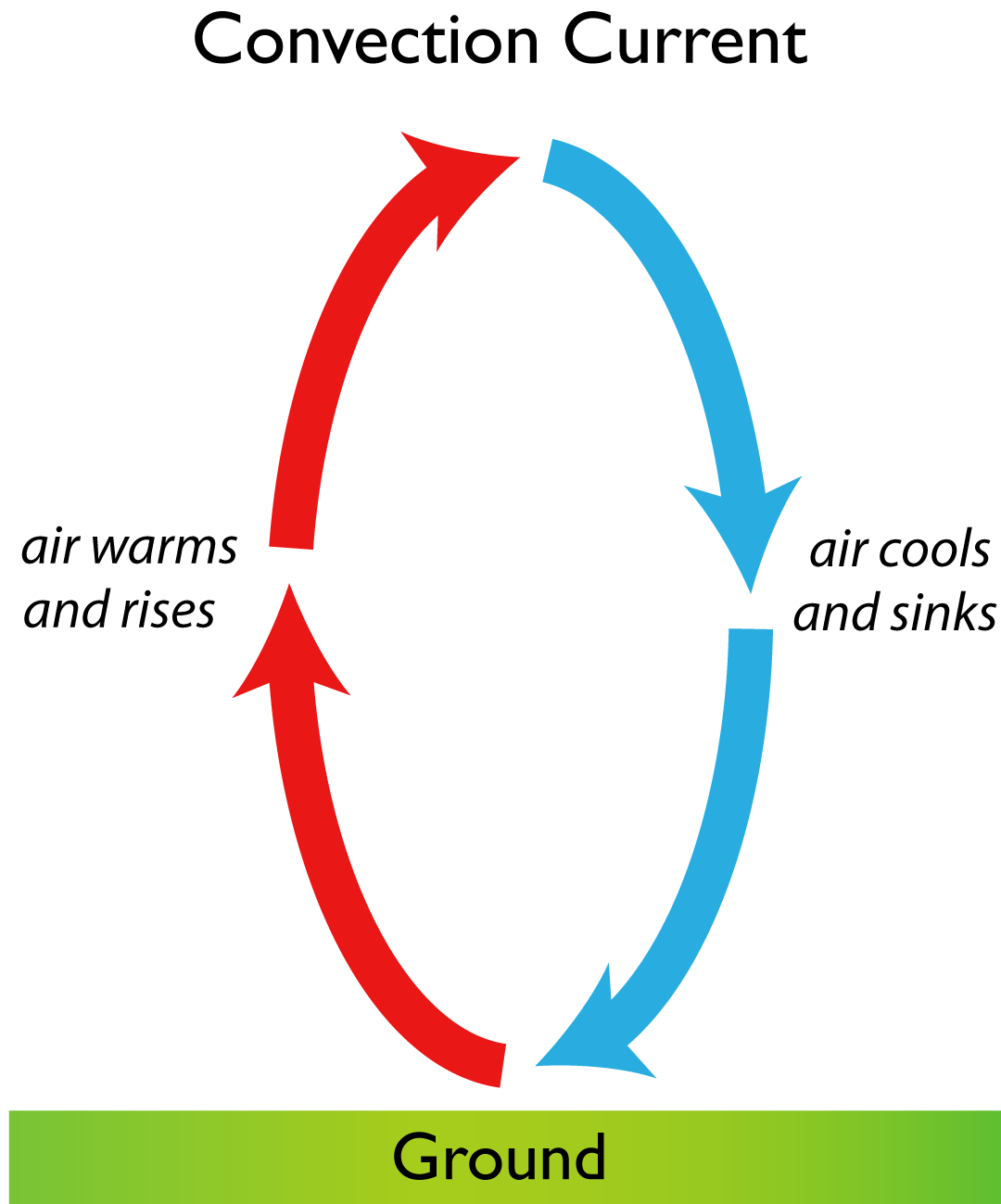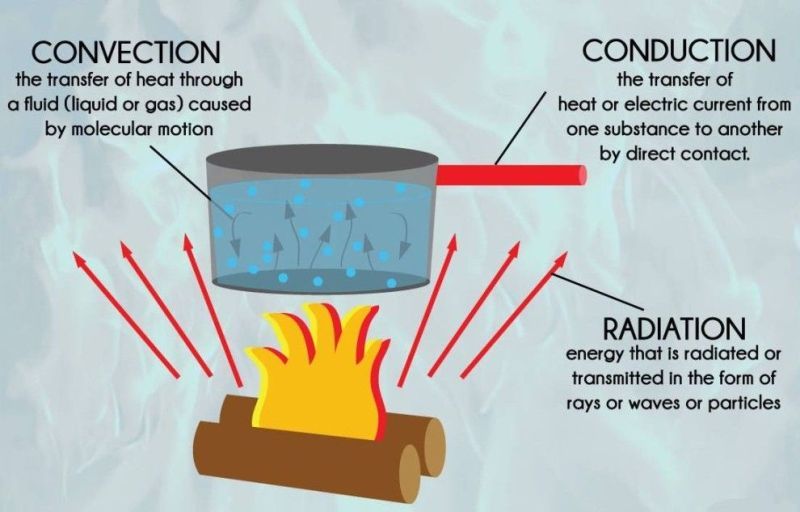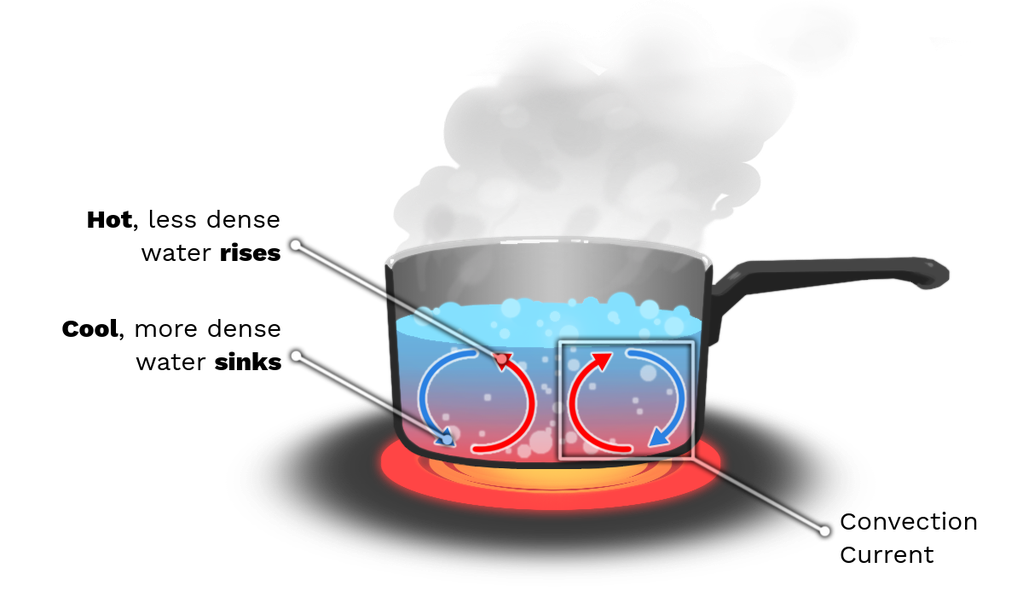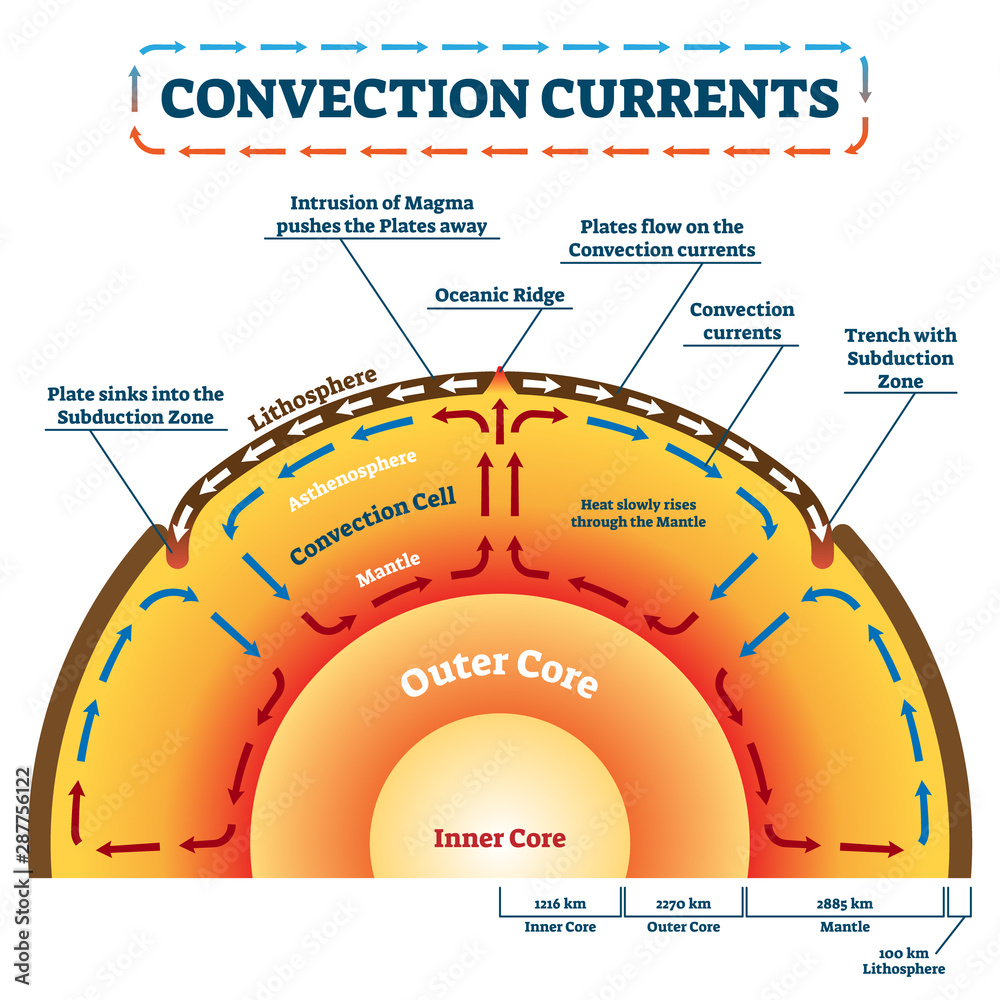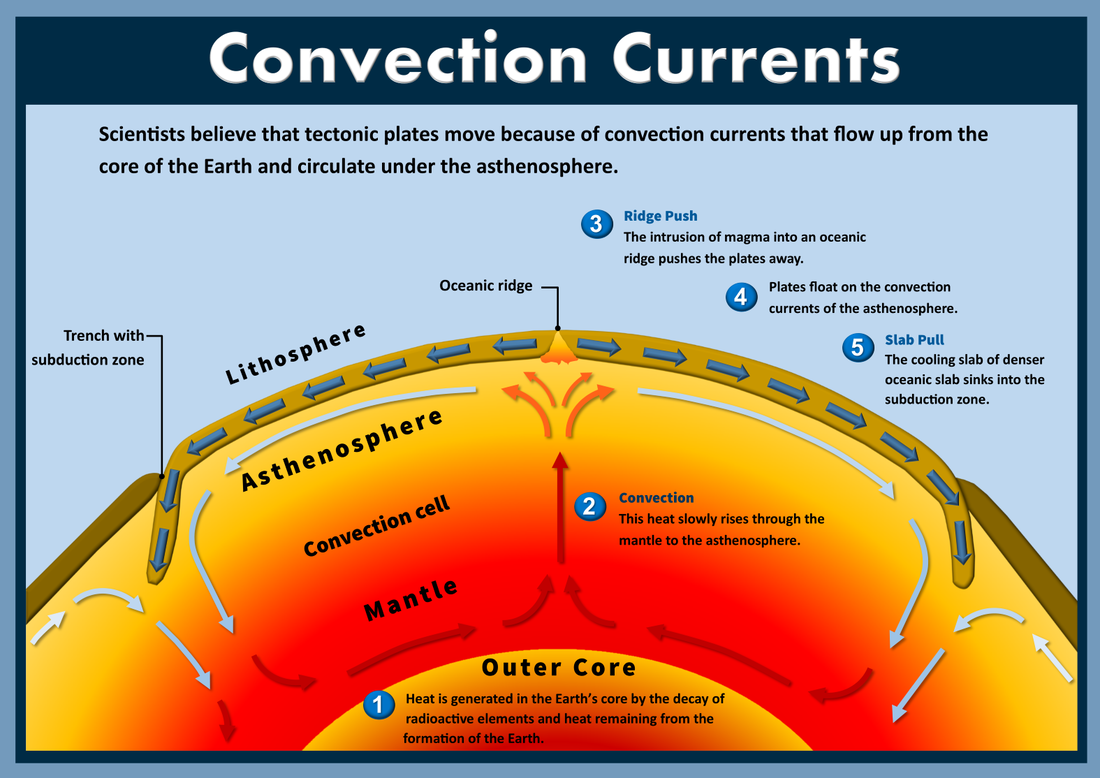Where Could Convection Currents Form - Why do convection currents form? Convection currents are driven by differences in temperature and density within a fluid, such as air or water. Convection currents form because a heated fluid expands, becoming less dense. Within the sun's convection zone, which stretches inward from its outer surface, heat energy is carried from the hot solar interior to the. The difference in temperature level causes the particles to move to result in the creation of the current. Warmer, less dense fluid rises, while.
The difference in temperature level causes the particles to move to result in the creation of the current. Convection currents form because a heated fluid expands, becoming less dense. Within the sun's convection zone, which stretches inward from its outer surface, heat energy is carried from the hot solar interior to the. Convection currents are driven by differences in temperature and density within a fluid, such as air or water. Why do convection currents form? Warmer, less dense fluid rises, while.
Warmer, less dense fluid rises, while. The difference in temperature level causes the particles to move to result in the creation of the current. Convection currents are driven by differences in temperature and density within a fluid, such as air or water. Why do convection currents form? Convection currents form because a heated fluid expands, becoming less dense. Within the sun's convection zone, which stretches inward from its outer surface, heat energy is carried from the hot solar interior to the.
Convection current the circular current of air caused by difference in
Convection currents form because a heated fluid expands, becoming less dense. Within the sun's convection zone, which stretches inward from its outer surface, heat energy is carried from the hot solar interior to the. Why do convection currents form? Convection currents are driven by differences in temperature and density within a fluid, such as air or water. The difference in.
What are Convection Currents?
Why do convection currents form? Convection currents form because a heated fluid expands, becoming less dense. The difference in temperature level causes the particles to move to result in the creation of the current. Warmer, less dense fluid rises, while. Convection currents are driven by differences in temperature and density within a fluid, such as air or water.
3 Engaging and Simple Ways to Have Convection Current Explained Aloha
Why do convection currents form? Warmer, less dense fluid rises, while. The difference in temperature level causes the particles to move to result in the creation of the current. Convection currents form because a heated fluid expands, becoming less dense. Within the sun's convection zone, which stretches inward from its outer surface, heat energy is carried from the hot solar.
Convection Currents In Air
Warmer, less dense fluid rises, while. Convection currents form because a heated fluid expands, becoming less dense. Within the sun's convection zone, which stretches inward from its outer surface, heat energy is carried from the hot solar interior to the. Convection currents are driven by differences in temperature and density within a fluid, such as air or water. The difference.
Convection Currents Vector Illustration Labeled Diagram Stock Vector
Convection currents are driven by differences in temperature and density within a fluid, such as air or water. Within the sun's convection zone, which stretches inward from its outer surface, heat energy is carried from the hot solar interior to the. Warmer, less dense fluid rises, while. The difference in temperature level causes the particles to move to result in.
13 Examples Of Convection In Everyday Life StudiousGuy
Why do convection currents form? Within the sun's convection zone, which stretches inward from its outer surface, heat energy is carried from the hot solar interior to the. Convection currents are driven by differences in temperature and density within a fluid, such as air or water. Convection currents form because a heated fluid expands, becoming less dense. The difference in.
Convection Currents In Water
Warmer, less dense fluid rises, while. Convection currents form because a heated fluid expands, becoming less dense. The difference in temperature level causes the particles to move to result in the creation of the current. Within the sun's convection zone, which stretches inward from its outer surface, heat energy is carried from the hot solar interior to the. Why do.
Convection Currents vector illustration. Labeled educational process
The difference in temperature level causes the particles to move to result in the creation of the current. Within the sun's convection zone, which stretches inward from its outer surface, heat energy is carried from the hot solar interior to the. Why do convection currents form? Convection currents form because a heated fluid expands, becoming less dense. Convection currents are.
SCIENCEISSTRANGE Convection currents, Data visualization, Wayfinding
The difference in temperature level causes the particles to move to result in the creation of the current. Within the sun's convection zone, which stretches inward from its outer surface, heat energy is carried from the hot solar interior to the. Warmer, less dense fluid rises, while. Convection currents form because a heated fluid expands, becoming less dense. Convection currents.
Describe the Convection Currents That Occur Inside Earth CodyhasKing
Convection currents are driven by differences in temperature and density within a fluid, such as air or water. The difference in temperature level causes the particles to move to result in the creation of the current. Warmer, less dense fluid rises, while. Convection currents form because a heated fluid expands, becoming less dense. Within the sun's convection zone, which stretches.
Why Do Convection Currents Form?
The difference in temperature level causes the particles to move to result in the creation of the current. Convection currents are driven by differences in temperature and density within a fluid, such as air or water. Warmer, less dense fluid rises, while. Within the sun's convection zone, which stretches inward from its outer surface, heat energy is carried from the hot solar interior to the.

